Greening the Drylands in Africa: IFAD holds a side event with RFS partners at the UNFCCC COP27
28 November 2022
Project Name
Family Farming Development Programme (ProDAF)
GEF Implementing Agency
IFAD
Objective
To strengthen sustainable family farming and climate change adaptation, and to improve market access for family farms.
Contact
Abdoullaye Soumaïla
abdoullaye.soumaila@prodaf.netMarou Bodo
bodo.marou@prodaf.netHarouna Traoré
traore.harouna@prodaf.netProject Targets
land under integrated and sustainable management
GHG emissions avoided or reduced
beneficiary households
The Tahoua, Maradi and Zinder regions of Niger are the most productive agricultural regions in the country; however, they are also the most affected by wind and water erosion. This leads to siltation of watersheds, deforestation, and declining groundwater levels—all of which negatively impact national food and nutrition security. Climate variability and climate change exacerbate these issues, particularly for vulnerable smallholder farmers and family farming units.
The RFS Niger project aims to combat the main drivers of environmental degradation through the promotion of a holistic and integrated approach to improve the productivity of agricultural systems.
The project is delivered through two interrelated components:
Intervention are being supported through the strengthening of institutional capacity, both at the national level with the Nigeriens Feed Nigeriens Initiative (i3N) and at local level local planning processes.
The project aims to meet the following targets:
Sustainable family farming promoted to allow rural producers to diversify their production, increase their yields and build their capacities to adapt to external shocks.
Access to markets enhanced to help farmers efficiently market any production surplus in semi-wholesale markets.
The lead agency for the RFS Niger project at the national level is the Ministry of Agriculture and Livestock, which works closely with the High Commission for the Nigeriens Feed Nigeriens Initiative (HCi3N). Major stakeholders in the project include the Regional Directorate of the Environment, Water User Associations, local authorities (communes), regional and departmental services for waterworks, specialized service providers, and the Regional Agriculture Chambers.
The programme also engages local research institutions and centres of excellence for expertise on agricultural practices and innovative planting materials. These include the National Institute for Agricultural Research of Niger and the International Centre for Research in the Semi-Arid Tropics (ICRISAT). The AGRHYMET Regional Centre is involved in the observation and management of climate risks.
Each RFS country project conducts activities that fall under common thematic areas within the programme. Explore each project theme relevant to the RFS Niger country project below to see which activities are being implemented under each theme.
Stories from the Field
Explore our stories from the field to learn more about the activities, milestones, lessons learned, and achievements of the RFS Niger project.
Relevant Resources
We have a growing library of reports, briefs, case studies, media, tools and guidelines. Explore all resources related to the RFS Niger project to get greater insight into our programme activities.
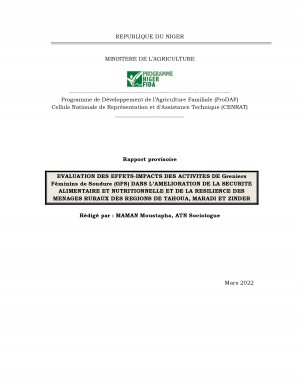
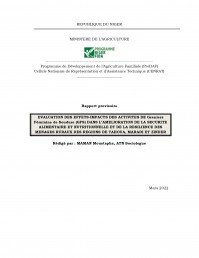
To better understand the impact of Women's Welding Granaries in the RFS project sites, the National Representation and Technical Assistance Unit (CENRAT), and the Family Farming Development Programme (ProDAF) conducted a survey to see what the effects have been on the ground.
In total, the project targets 3669 GFS members (45% in Maradi, 31% in Zinder and 24% in Tahoua) with 8 villages per region practising GFS. 244 women were surveyed in the study, including men’s focus groups in each village to form a holistic impression of the impact.
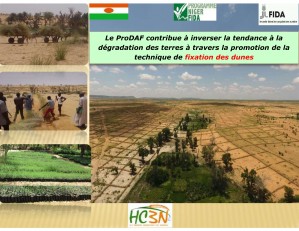
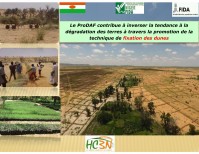
The RFS Niger project team presents their context, approaches and lessons learned in reversing land degradation.
This presentation was part of Learning Lab 3: Best practices on Sustainable Land Management for achieving Land Degradation Neutrality of the 2022 Resilient Food Systems Annual Workshop in Blantyre, Malawi.
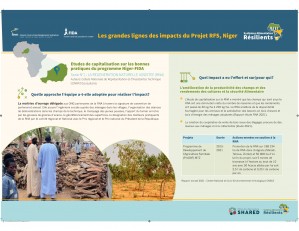
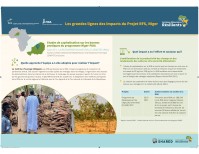
The 2022 Resilient Food Systems Knowledge Exchange and Learning Workshop included an interactive experience-sharing wall, featuring impact posters across RFS countries and components of the Regional Hub.
This poster was prepared by the Family Farming Development Programme (ProDAF) in Niger.